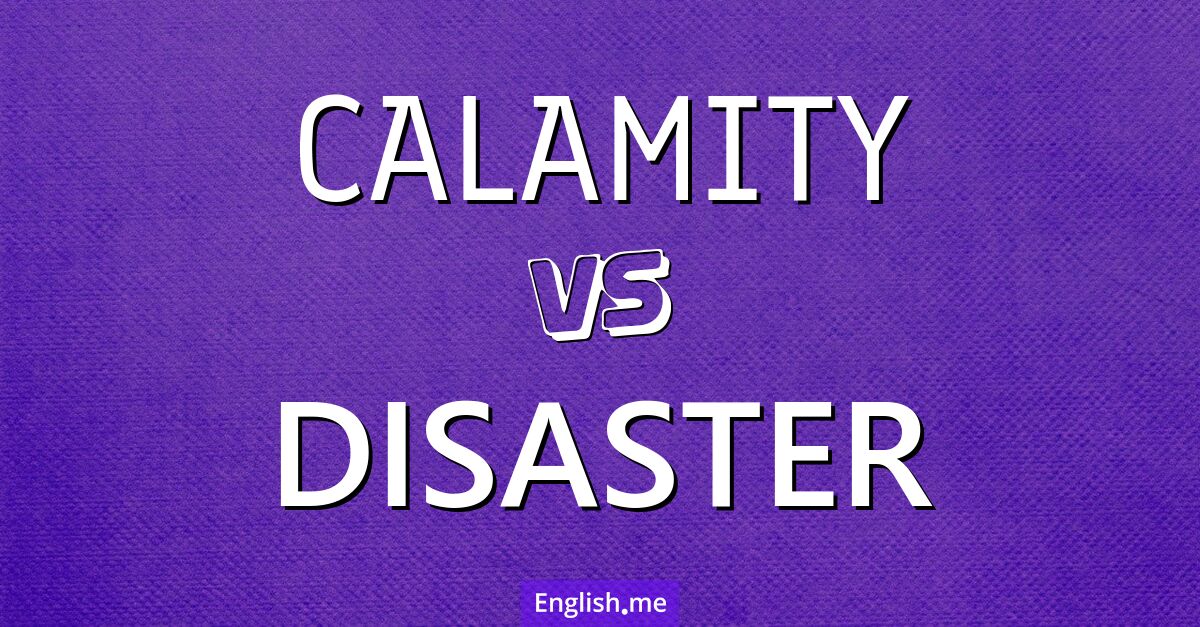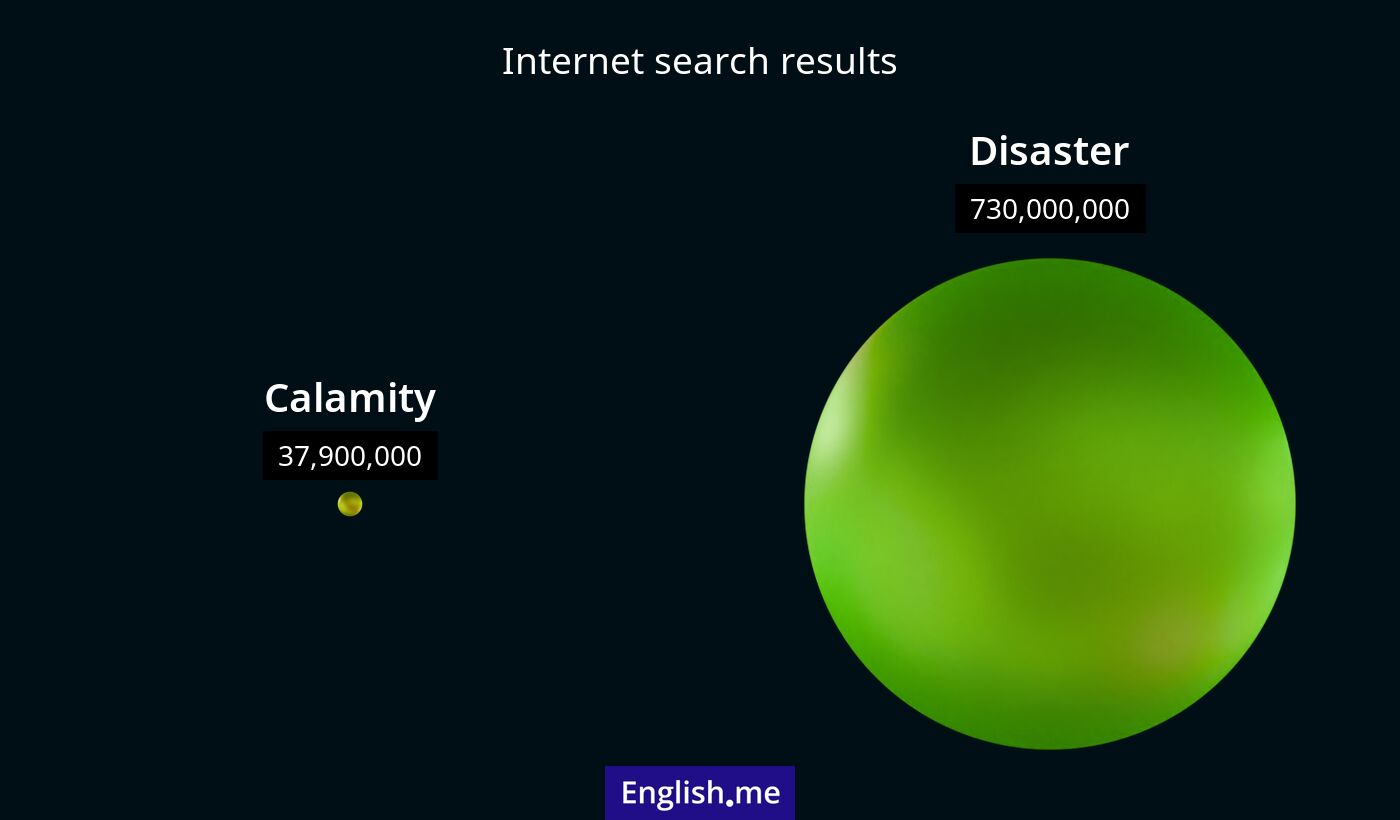"Calamity" vs. "disaster": nuances of misfortune
Reviewed and edited by  Lloyd Cooper 27/10/2024, 21:39
Lloyd Cooper 27/10/2024, 21:39
English.me team member

 What is similar?
What is similar?
Both "calamity" and "disaster" refer to events that cause great harm, damage, or distress. They are often used interchangeably to describe situations with severe negative impacts on people or environments.
 What is different?
What is different?
While both terms describe adverse events, "calamity" can sometimes imply a more generalized or broad sense of misfortune, often in less tangible or more personal contexts. "Disaster" is more commonly used to describe specific events with immediate, profound impacts, often in a physical or environmental context such as natural disasters.
 Which one is more common?
Which one is more common?

 Examples of usage
Examples of usage
Calamity- The economic crisis became a nationwide calamity.
- The storm was a calamity that left the town in ruins.
- His sudden departure was regarded as a calamity for the project.
- The hurricane was a natural disaster that devastated the region.
- The party was a complete disaster due to the unexpected rain.
- The project's failure was seen as a major disaster for the company.

 English
English español
español française
française italiano
italiano deutsche
deutsche 日本語
日本語 polski
polski česky
česky svenska
svenska Türkçe
Türkçe Nederlands
Nederlands